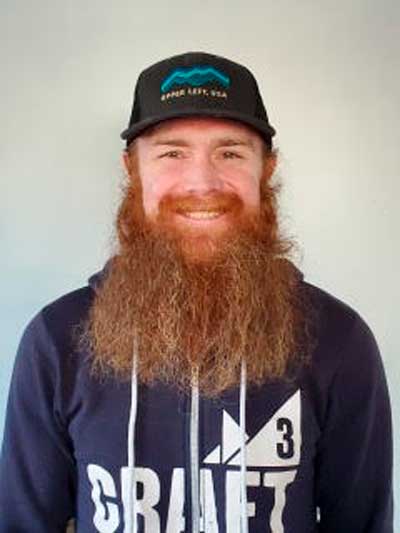
Brad Ferris at Craft3:
Using banking for public good
Every month PelotonLabs co-founder Liz Trice interviews a local community member. This month, Liz caught up with Brad Ferris of Craft3, a non-profit lender making loans to small businesses in the Pacific Northwest that have positive community impact and don’t qualify for traditional bank financing.
Craft3 is a community development financial institution (CDFI) that “uses capital to build resilience, lessen the racial wealth gap, and expand economic opportunity for all.” How do you do that, and how did you get started?

We focus on businesses in Washington and Oregon owned by individuals from groups that historically have had trouble getting traditional financing. Those that are immigrant, veteran, women, BIPOC-owned, or those that are doing good things for the environment. Our work also includes commercial owner-occupied real estate and affordable housing for veterans . . . a lot of variety! Our loans are typically $25 thousand to $5 million.
I went to college in Missoula, Montana, and then worked at traditional banks for a decade as a credit underwriter, analyst, and lender. I’ve lived and worked all over the country – Arizona, Massachusetts, California, Oregon, Washington, Idaho, and Montana.
I was attracted from banking to Craft3 seven years ago because of the community focus. Right now, I’m in the role of an underwriter. The loan officer finds the deals, interacts with the borrower, does the sales, and then the underwriter researches everything about the transaction and all the risks associated with it, and structures a deal to mitigate those risks.
Tell me about some projects you’ve worked on.
I’m proudest of deals that have a big community impact.
Right when I started, there was a development near Portland, Oregon, the Sugar Shack, which was basically a strip club center in a neighborhood with lots of families. People were using drugs in the parking lot and there was a lot of prostitution. When the owner of the property got in trouble the operations closed, and the people in the neighborhood knew they needed to do something, but they didn’t have a plan.
We ended up lending them $2 million to buy the property. We gave them one year to come up with a plan, and another year to execute the plan. A bunch of organizations stepped in to help purchase the property and made a plan to demolish it and build housing and community spaces.
More recently, there was a situation where seven immigrant-owned businesses were in a building that was going to be sold, and we helped a non-profit purchase the building so those businesses could stay there.
How did you come to live in Portland?
I really like to run. My first time to the east coast was to run the Boston Marathon.
I ended up living and working in Massachusetts for a while and visited Portland a few times. I always liked Portland and thought it would be a great place to live. And so, about a year ago I sold my house in Washington State and moved. I moved here alone and didn’t know anyone, but I live in an apartment in the Old Port and I’ve been enjoying exploring Portland’s restaurants and bars and meeting people. I’m looking forward to spending more time outdoors in the summer.
The outdoor recreation community is unique here because of the blend of both ocean and mountains. I think Maine is culturally more like the west coast than Massachusetts. Especially in Portland where it’s a more laid back and progressive city. I enjoy that it’s a small city but feels like a big city. People are very community focused.
I’d like to stay long term and am interested in getting involved in the local community. In the past I was on the equivalent of Buy Local for Spokane. I’d also like to get back into running long distance races.
Is there an equivalent to Craft 3 in Maine?
Coastal Enterprises is probably the closest. There are also lots of organizations that help local and disadvantaged entrepreneurs.
https://southernmaine.score.org
PelotonLabs is a coworking space in the West End of Portland, Maine with a mission to connect and encourage people working on their own to manifest their visions without fear.
PelotonPosts is created by PelotonLabs. WEN provides column space without charge. PelotonLabs has been a paid advertiser. WEN publisher and editor Tony Zeli is a coworking member at PelotonLabs.





